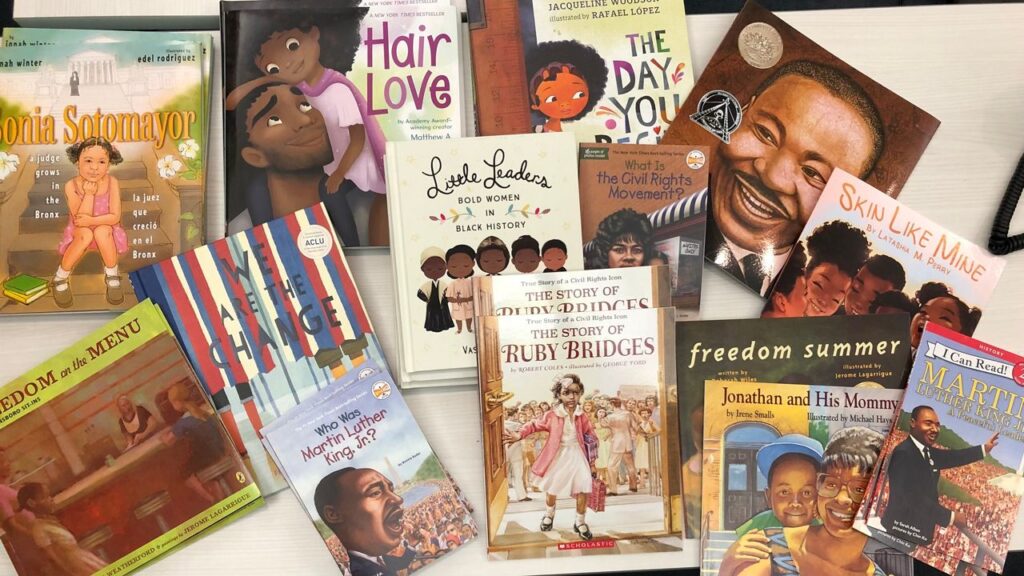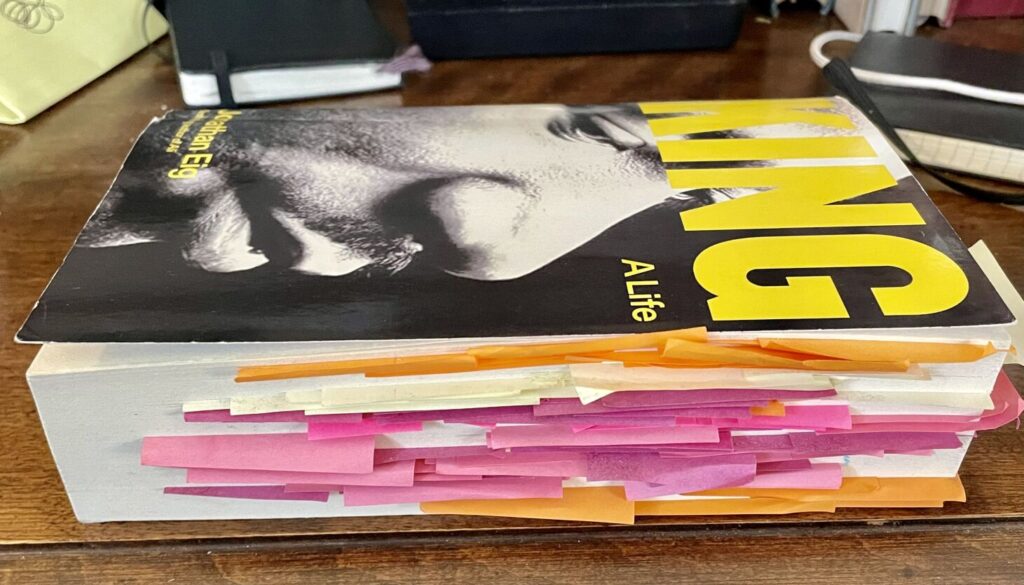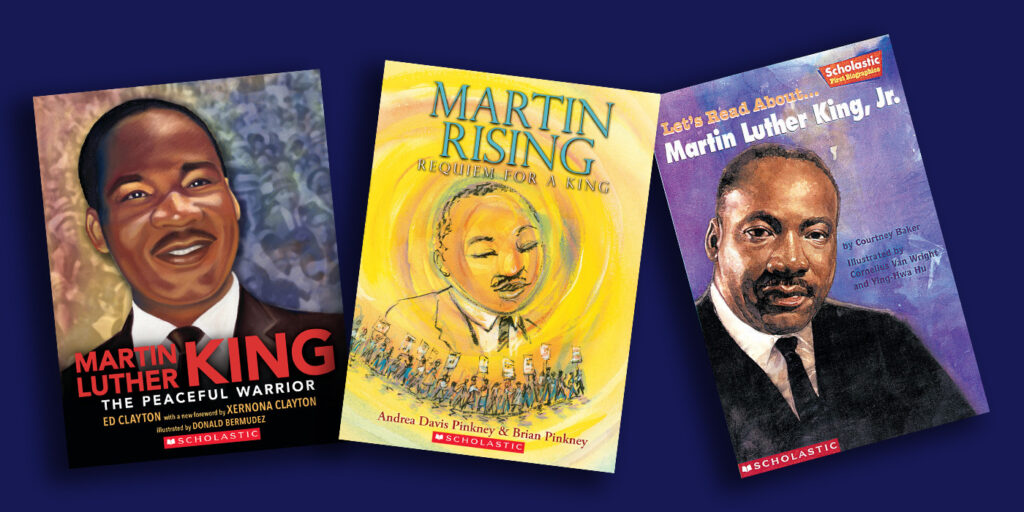How Many Books Did Mlk Write: A key figure in the American civil rights movement, Martin Luther King Jr. is remembered for his moving speeches, unwavering dedication to justice, and bold leadership. His passionate speeches and support for racial equality, as well as his writing, will never be forgotten. Many people are interested in MLK’s writing legacy and ask, “How many books did he write?”
Martin Luther King Jr. made a significant contribution to literature despite not being known for writing much. His lectures, essays, and speeches are the best way to understand his ideas and his fight for social change. These texts give us a unique view of how King’s ideas changed over time and the thoughts and goals that drove his actions.
All of King’s works, from “Letter from Birmingham Jail” to “Strength to Love,” are about the same things: justice, equality, and peaceful resistance. His unshakable commitment to making the world a more caring and fair place is clear in every piece he writes.
This question not only counts the number of books MLK released but also shows how many books he wrote overall. Take a literary tour with us through Martin Luther King Jr.’s writings and learn about the person behind the famous talks.

What did Martin Luther King Jr write?
During his life, King authored five books: Strength to Love, Stride Toward Freedom: The Montgomery Story, The Trumpet of Conscience, Where Do We Go From Here: Chaos or Community?, and Why We Can’t Wait.
Martin Luther King Jr. became a powerful speaker and wrote a lot. He also played a major role in the American civil rights movement. One of his most famous works is “Letter from Birmingham Jail,” which came out in 1963. This letter was written in answer to white pastors who didn’t agree with King’s peaceful protests against racial inequality. In it, King made a strong case for why civil disobedience was both morally necessary and okay when laws were unfair.
The “I Have a Dream” speech that King gave at the 1963 March on Washington for Jobs and Freedom is another well-known work. This speech touches a nerve with its strong call for racial justice and equality. It imagines a time when people are judged by the content of their character instead of the color of their skin. King’s speech was a turning point in the fight for civil rights because of how well it was written and how clear its ideas were.
King’s first book, “Stride Towards Freedom: The Montgomery Story,” came out in 1958. The Montgomery Bus Boycott was a turning point in the civil rights movement, and this book tells its story. King’s work shows his deep concern for peaceful protest and his desire to change society through love and understanding.
King’s 1963 collection of sermons, “Strength to Love,” reveals his spiritual views and the ideas that inspired the civil rights movement. King wrote to motivate people to act immediately and commit to justice and equality for the long haul.
Besides these great works, King’s speeches, sermons, and writings are still studied and known for having a huge impact on the American psyche. His work is still a strong reminder of the ongoing fight for civil rights and the goal of a society that is more fair and includes everyone.
What is the total number of books written by Martin Luther King Jr. throughout his lifetime?
Even though he wrote little, Martin Luther King Jr.’s writings had a big impact because they expressed his strong beliefs and fight for social justice. King may have written fewer traditional books than some other writers, but the importance of his work goes far beyond the number of books he has written.
Martin Luther King Jr. wrote five books that show how much he cared about justice, equality, and peaceful protest. The books he wrote include “Where Do We Go From Here: Chaos or Community” (1967), an autobiographical account of the Montgomery Bus Boycott called “Why We Can’t Wait” (1964), “Stride Towards Freedom” (1958), “Strength to Love” (1963), a collection of sermons that talk about love, justice, and nonviolence, and finally “The Trumpet of Conscience” (1968), a collection of speeches that talk about social issues.
Irrespective of how little official writing King has done, each of his books is extraordinarily important. The fight for racial equality was built on his ideas, and his writings perfectly capture the spirit of the civil rights movement. In addition to his published works, Martin Luther King Jr. left a lot of written materials, such as speeches, sermons, notes, and more, that explain his ideas and vision for a caring and equal society.
When looking at Martin Luther King Jr.’s literary works, it’s clear that they are important not only because there are a lot of them but also because they still have an impact on conversations about justice, equality, and civil rights today.
How many speeches did MLK write?
The Dr Martin Luther King Jr gave over 2,500 public speeches during his lifetime – many of them were improvised, delivered without a manuscript and with maybe just a few notes.
During his leadership of the American civil rights movement, Martin Luther King Jr. gave many speeches. Although no one knows how many classes he actually took, his legacy is marked by a few famous quotes that dramatically changed the course of history.
The “I Have a Dream” speech that King gave at the March on Washington for Jobs and Freedom in 1963 is one of his most well-known. People know this speech for its strong call for racial equality and justice. It imagines a time when people will be judged on the content of their character instead of the color of their skin. Because of its universal appeal, “I Have a Dream” has become a symbol of the ongoing fight for human rights.
“Letter from Birmingham Jail,” which he wrote in 1963 in response to white preachers’ criticism of his peaceful actions against racial segregation, is another important work. In this letter, King explained why it was good to fight against laws that were unfair and made the case for using civil disobedience as a method.
King’s talks were not only about the fight for civil rights but also about the Vietnam War and economic inequality. In his speeches, he always talked about how love and understanding can bring about social change. He also talked a lot about his commitment to nonviolent opposition.
Aside from these well-known talks, King also gave sermons, lectures, and addresses at many other events, which added to the variety of his writings. People who fought for justice and equality looked up to him because he was so articulate and knew how to talk about tough topics in a way that people could understand.
Although it’s hard to say how many talks Martin Luther King Jr. really gave, the fact that the ones that are known to have been recorded and studied shows how important they were in the fight for social justice and civil rights in the United States.
What is the best book on Martin Luther King?
Garrow’s 1986 biography “Bearing the Cross” as the definitive life of King, as Garrow himself deposed recently in The Spectator. It also updates the material in Taylor Branch’s magisterial trilogy about America during the King years.
Choosing the “best” book about Martin Luther King Jr. is subjective because it is based on the reader’s preferences and the most intriguing aspect of King’s life or contributions. “Parting the Waters: America in the King Years 1954–63,” Taylor Branch’s well-known biography, gives a deep and thoughtful look at King’s life. Branch’s first book in a trilogy about the civil rights movement won the Pulitzer Prize. It is mostly about King’s early life and how the movement changed in its early stages. There is a lot of information in this book about King’s role as a leader, his nonviolent resistance theory, and the problems he had during this very important time.
“The Autobiography of Martin Luther King, Jr.,” edited by Clayborne Carson, gives a more in-depth look by putting together King’s writings, speeches, and conversations into a first-person account. Carson, a famous historian who is in charge of King’s archives, does a great job of putting together different sources to make a story that shows King’s ideas and style over time.
Marshall Frady’s “Martin Luther King: A Life” is a deeply human picture of King that talks about his inner struggles, doubts, and sacrifices for the cause of civil rights. Because Frady writes with kindness, readers get a full picture of King as a complicated man dealing with the problems of his time.
The “best” book about Martin Luther King Jr. relies on what the reader wants—a deeper look at the man who led the movement, a first-person account, or an academic look at the history behind the events. But these ideas are great places to start for people who want to learn more about King’s life and the important things he did in the fight for justice and equality.

In what ways did MLK use his writings to advocate for social justice and civil rights during the American civil rights movement?
During the American Civil Rights movement, Martin Luther King Jr. used writing as a powerful tool to fight for social justice and civil rights. King gave many powerful speeches, papers, and emails that not only laid the groundwork for the movement but also discussed the problems African Americans were having.
The powerful “Letter from Birmingham Jail” by Martin Luther King Jr. shows how he used writing to fight for social justice. The letter, which was written in response to clergy who were critical of the Birmingham protests, spoke eloquently about the moral imperative of fighting injustice while also addressing current issues. People all over the country were moved by his ideas because they combined a strong desire for peaceful resistance with religious belief.
King gave his famous “I Have a Dream” speech at the March on Washington in 1963. It was a summary of his vision for a calm, united America. The speech, which was a masterpiece of public speaking, moved not only the people who were on the National Mall but also people throughout history, as it helped start the civil rights movement.
King wrote a detailed account of the state of racial relations in America in the book “Why We Can’t Wait,” stressing how important it was for things to change right away. Americans were woken up by the book, which begged them to face the harsh truths of racism and segregation. People changed their minds about King’s works, and the civil rights movement began because they were morally clear and always worked for justice.
In addition to these main works, King’s lectures and open letters always talked about love, nonviolence, and equality. His works, which make a powerful moral case for civil rights, still speak to people who fight for justice and equality today, as well as inspiring activists of his time. King’s writings didn’t just show what he believed; they were a strong force for change that challenged social norms and paved the way for a more equal and welcoming America.
How many years did MLK skip?
King entered college at the age of 15.
King was such a gifted student that he skipped grades nine and 12 before enrolling in 1944 at Morehouse College, the alma mater of his father and maternal grandfather.
King was so smart that he skipped grades nine and twelve and went straight to Morehouse College in 1944, where both of his parents had attended.
You can’t believe any historical records or sources that say Martin Luther King Jr. “skipped” any years in the usual sense. King was born in Atlanta, Georgia, on January 15, 1929. He lived and worked in a very organized way. There were big turning points in his life, academic successes, and leading roles in the civil rights movement.
King did very well in school and graduated from Morehouse College in 1948 with a bachelor’s degree in sociology. He then attended Crozer Theology Seminary and earned a bachelor of divinity in 1951. In 1955, he received his Ph.D. in systematic theology from Boston University.
Because Rosa Parks wouldn’t give up her bus seat to a white man in 1955 and 1956, there was the Montgomery Bus Boycott. King became a well-known figure in the civil rights movement because of this. This was the first big thing King did to help the civil rights movement. The movement was shaped by his leadership and support for peaceful opposition.
King gave the famous “I Have a Dream” speech at the March on Washington in 1963. In 1964, he was awarded the Nobel Peace Prize for his long-term efforts to use peaceful means to fight racism.
On April 4, 1968, in Memphis, Tennessee, Martin Luther King Jr. was killed, ending his life. People all over the world still remember what King did for the civil rights movement, and his influence lives on. Even though his life story is full of dedication, bravery, and success, he doesn’t seem to be “skipping” any years in the strictest sense.
How Many Books Did Martin Luther King Jr Write
All through his life, Martin Luther King Jr. wrote many important books, essays, and articles that were the intellectual and philosophical foundations of the civil rights movement. One of his best-known books is Stride Towards Freedom: The Montgomery Story, which came out in 1958. The Montgomery Bus Boycott was a turning point in the civil rights movement that helped King become famous. This book tells the story of that event.
King’s second book, Strength to Love, came out in 1963. It is a collection of his sermons on the moral and spiritual aspects of the civil rights movement. The sermons discuss love, nonviolence, and how faith can change things when bad things happen.
Even though King is listed as the author of these published works, it’s important to remember that he often worked with other people to create them. “Letter from Birmingham Jail,” for example, was written by King while he was in jail in response to criticism from white clergymen. Although it’s not a book in the usual sense, this letter does a good job of expressing King’s beliefs and values.
Through essays and articles he wrote for many different publications, King developed his ideas and vision for social justice. Because of his writing style, his works are both intellectually and emotionally deep. They are also beautiful and make a strong case for equality.
While King has only written a few novels, his work has had a big impact on many areas that are not traditionally thought of as books. His powerful essays, letters, and speeches have been read by and helped many people who are still fighting for justice, equality, and human rights.
The Autobiography of Martin Luther King, Jr
“The Autobiography of Martin Luther King, Jr.,” edited by Clayborne Carson, is a profound and thought-provoking examination of the life and ideas of one of the most influential people in the American civil rights movement. This book, which was published after King died in 1998, uses his own words from sermons, writings, lectures, and interviews to show how he evolved as a leader and thinker.
The autobiography discusses King’s early life in Atlanta, Georgia, including his upbringing in the home of a Baptist minister and the impact of his father’s teachings. The movie then follows King as he continues his education, showing him at Boston University, Crozer Theological Seminary, and Morehouse College, where he received his Ph.D. in Systematic Theology.
Carson does a great job of putting together King’s thoughts on the March on Washington, the Southern Christian Leadership Conference (SCLC), and the Montgomery Bus Boycott. King had mental and intellectual problems, he was committed to peaceful opposition, and being a leader took a toll on his personal life.
King didn’t write a traditional autobiography, but this one does a great job of capturing his style and telling an interesting story. Carson does a great job of editing by arranging King’s sentences in chronological order, allowing readers to see how his ideas and philosophy have changed over time.
King wrote “The Autobiography of Martin Luther King, Jr.” to show how much he cared about fairness, equality, and peaceful social change. Because it gives a clear picture of King’s thoughts and experiences, the book is both a historical record and an inspiring tribute to the life and work of a man who was very important in shaping the course of American history.
When we ask, “How many books did MLK write?” we find that the things he wrote are just as important as the things he said. As a writer, he may not be very productive in the usual sense, but the range and depth of his work are much greater than their number.

King’s books, speeches, and letters reveal a deeply moving portrait of a leader with a big dream: a society free from racial inequality and injustice. Even the few works that have been directly attributed to him show that his writing was much more about quality than quantity.
King’s writing has an ongoing effect because it speaks to people of all ages and spans time. People who read his writings are still moved and challenged to act against injustice in society to uphold the values of equality and nonviolent resistance. King’s words still give us hope in hard times and inspire us to work for a future full of fairness, kindness, and understanding.
Even if we count the books that MLK actually wrote, the real proof of his literary legacy is how his words have changed society as a whole. Martin Luther King Jr. is a famous figure in both literature and civil rights history because of his writings. These writings show how ideas can change communities and bring about change.










